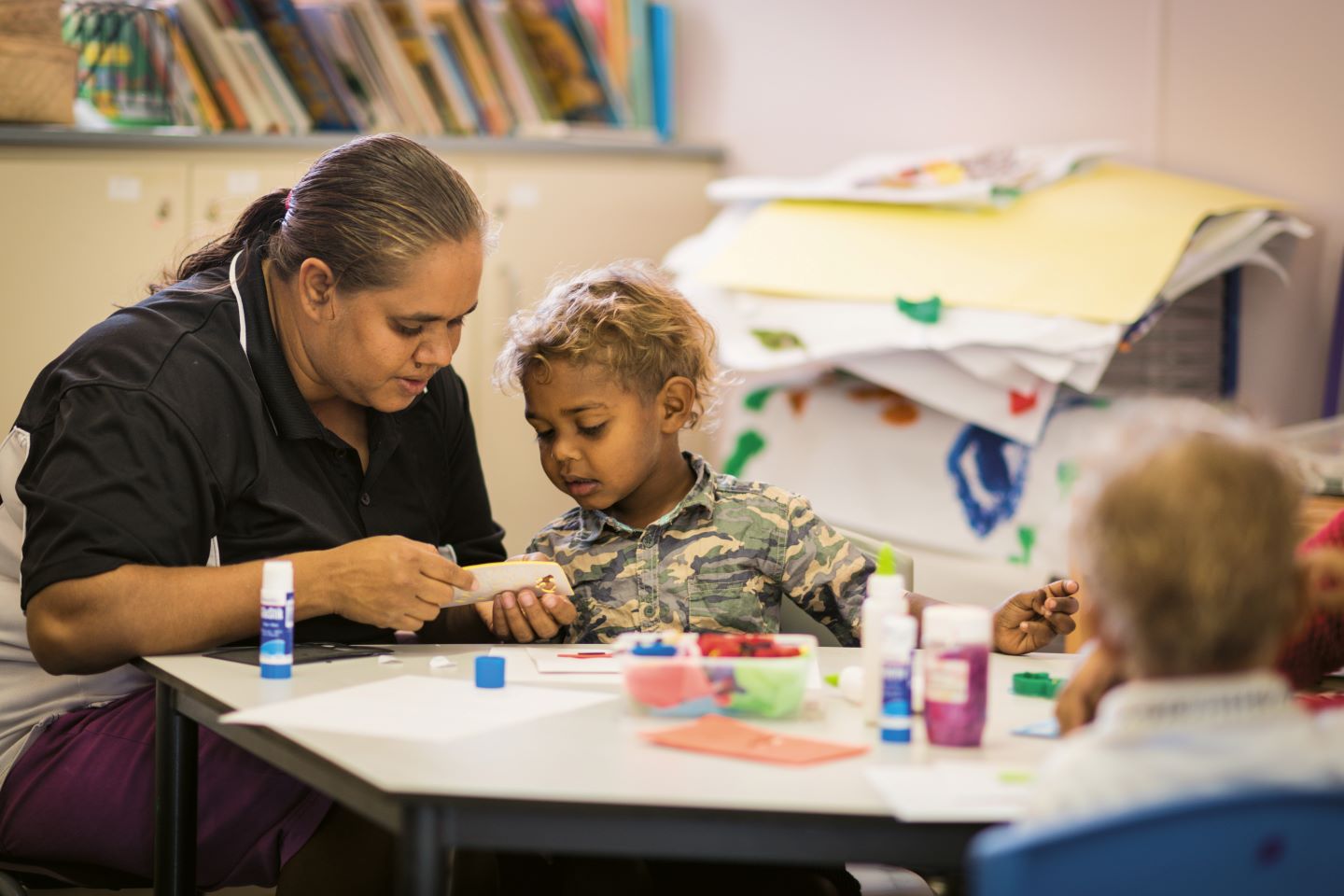Youth in remote and Indigenous communities in Western Australia need the most help right now, where school attendance and educational outcomes are particularly challenging.


It’s National Child Protection Week on 1–7 September, a call to action to give every child in every community a fair go.
This is particularly important in remote and Indigenous communities where educational disparities are strikingly evident.
The 2024 NAPLAN results reveal that about one in three First Nations children tested in the ‘needs additional support’ proficiency level compared to one in 10 non-Indigenous students.
Moreover, Indigenous students in remote areas have significantly lower school attendance rates compared to their non-Indigenous peers, and this gap widens with each level of schooling (Closing The Gap Report, 2020).
These figures highlight the urgent need for equitable access to education for Aboriginal and Torres Strait Islander children.
The Y WA is addressing this challenge and promoting a fairer WA for all children through their ‘Education Engagement & Attainment Initiative’, funded by the National Indigenous Australians Agency (NIAA).
The program provides holistic support on a case-by-case basis to Aboriginal and Torres Strait Islander students and their families in the Newman region to help them stay engaged in and attend school.

By assessing the specific needs and complexities of each household and providing holistic support, the program aims to overcome the barriers that many of these young people face.
Working with the most vulnerable and at-risk students and families, the program provides transport, school supplies, stationary, uniforms, lunches, referrals to other services, outreach programs, sporting programs, food, activities and more.
Dr Tim McDonald, CEO of the Y WA, emphasised the programs impact. Stating that, “communities in remote and Indigenous areas face significant challenges in school attendance and educational outcomes. This program aims to tackle these issues by improving access to quality education and supporting students and families in these regions.”
“The main goal is to increase attendance rates in schools situated in remote areas, so that all children are provided with a quality education to allow them to flourish.”
“Access to quality education is key to breaking cycles of disadvantage for Indigenous children, laying the foundation for a more equitable future by overcoming barriers like poverty, discrimination, and remoteness, which are crucial to closing the gap in all aspects of life.”
By addressing each family’s unique needs and providing comprehensive support, the Y WA is helping to create a more equitable educational landscape where every child can flourish in National Child Protection Week and year-round.

Fairer WA for all
The Y WA believes that to create a fairer, more equitable WA for all, we must start by laying strong foundations in the early years to ensure children have the building blocks to flourish when they enter school and beyond.
Over the past two years the Y WA has been developing its School ReadY program, designed for children aged three to five.
“At the Y WA, we’re addressing these poor NAPLAN results head-on with our early literacy School ReadY Program, now running across all 14 of our Early Learning Centres,” Dr McDonald added.
The School ReadY innovative program combines play-based and intentional learning to build success in three developmental domains including literacy and language, social and emotional wellbeing, and numeracy.
“If we don’t intervene early and catch those children in those years prior to school, they are going to start school at a disadvantage,” Dr McDonald said.
“We are driven to make a difference for all our children that we have employed a literacy specialist to provide on-going support for the staff and families in our ELC communities.”
The program has an initial focus on early literacy and oral language, helping children who do not come from a background with strong language skills.
“Reading is the key to learning so if we can teach children the early literacy and oral language skills that prepare them to learn to read once they get to school, they will have a greater opportunity to thrive,” Dr McDonald added.

The Y WA believes that laying strong foundations in the early years is crucial for reducing the literacy gaps highlighted by NAPLAN and setting all children up for long-term success upon entering school and beyond.
The not-for-profit believes increased investment in early childhood programs like School ReadY is vital and believes the program should be made accessible to every three-to-five-year-old in our state. Dr McDonald said funding would help expand and improve early learning initiatives, setting a stronger foundation for future success.












